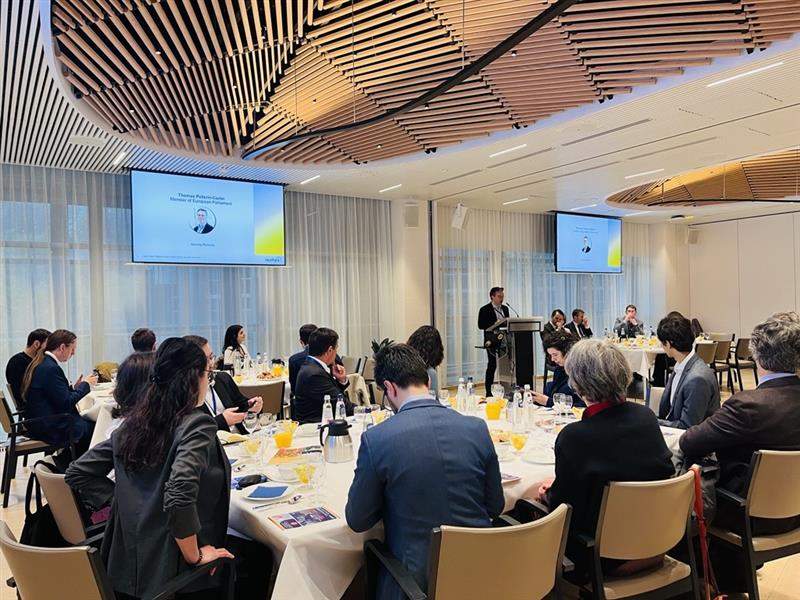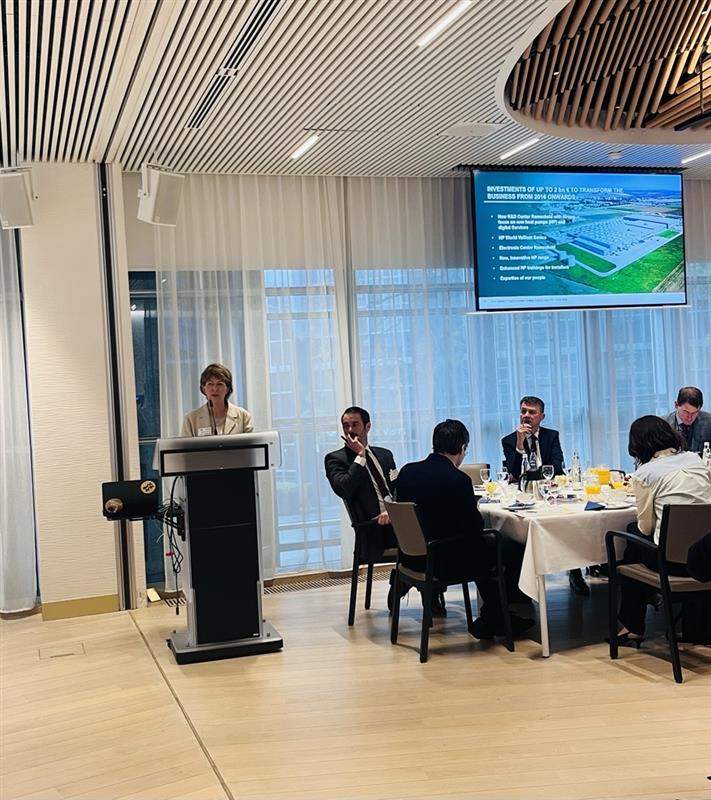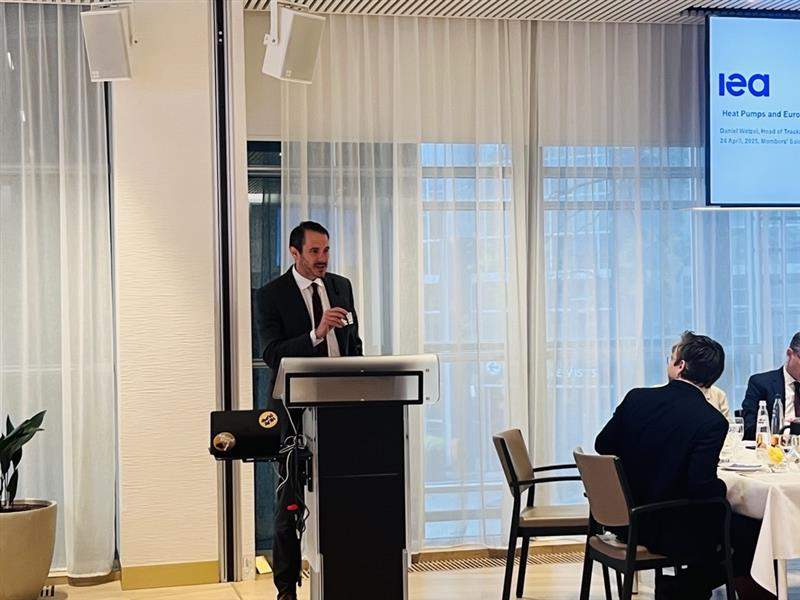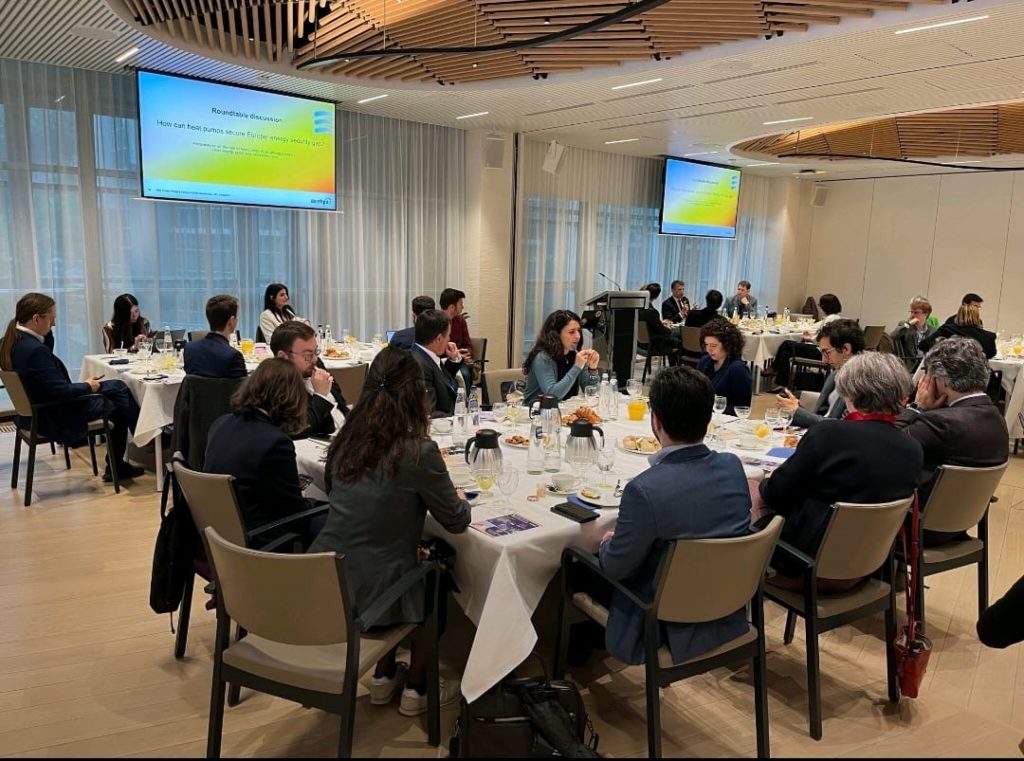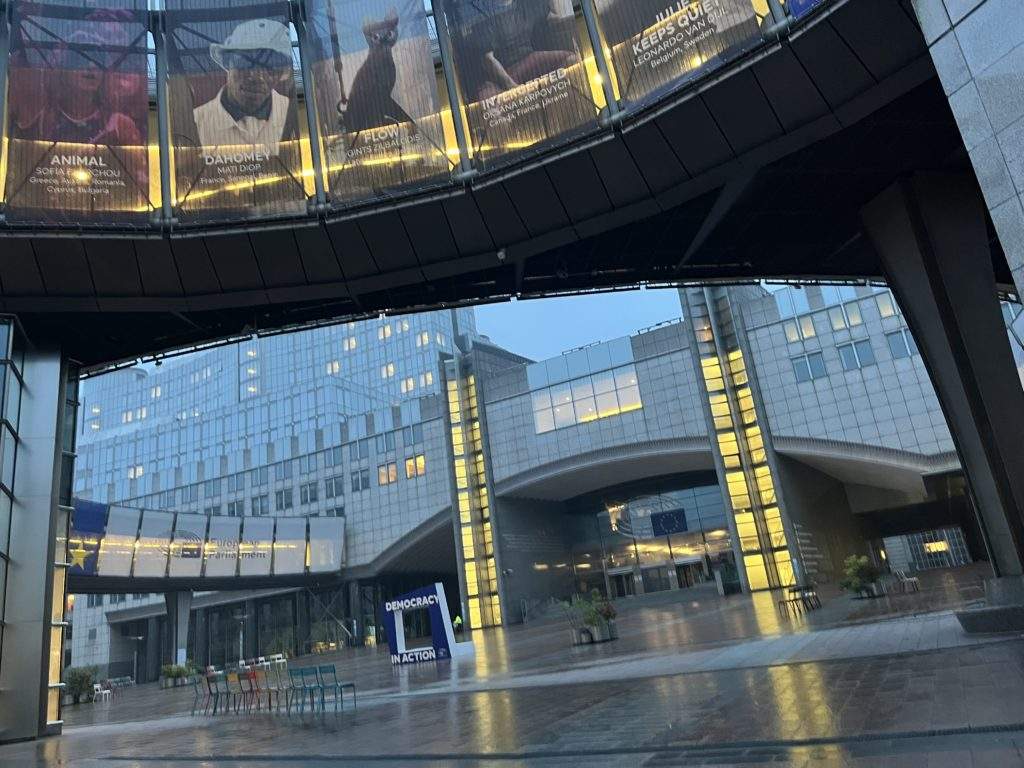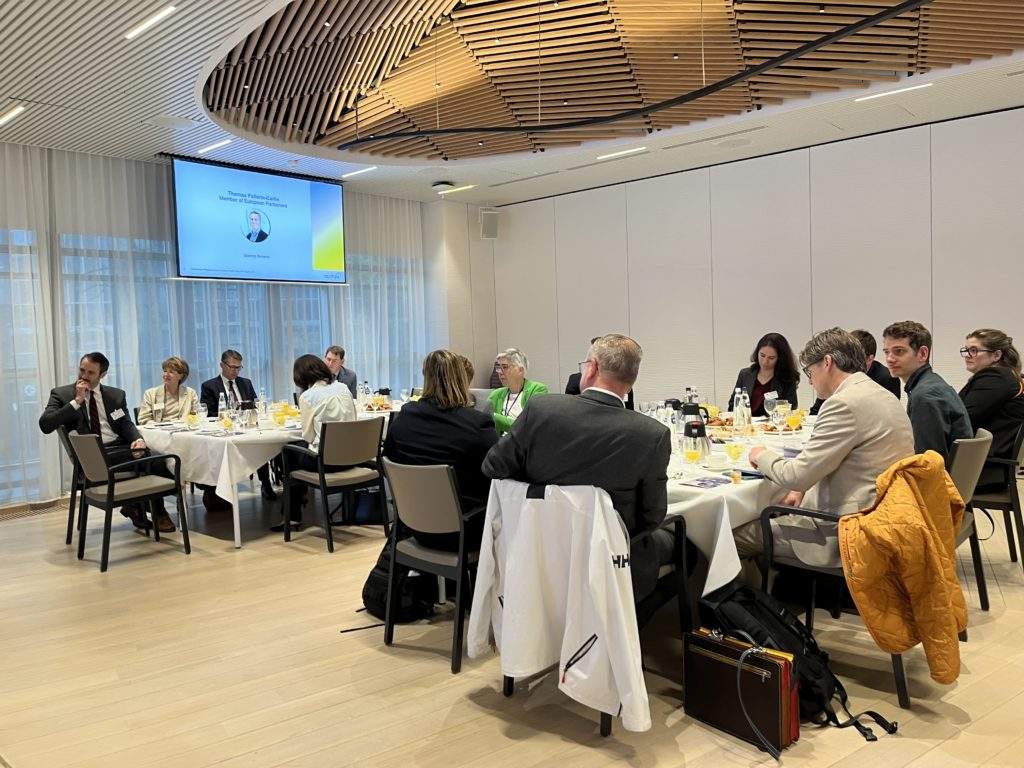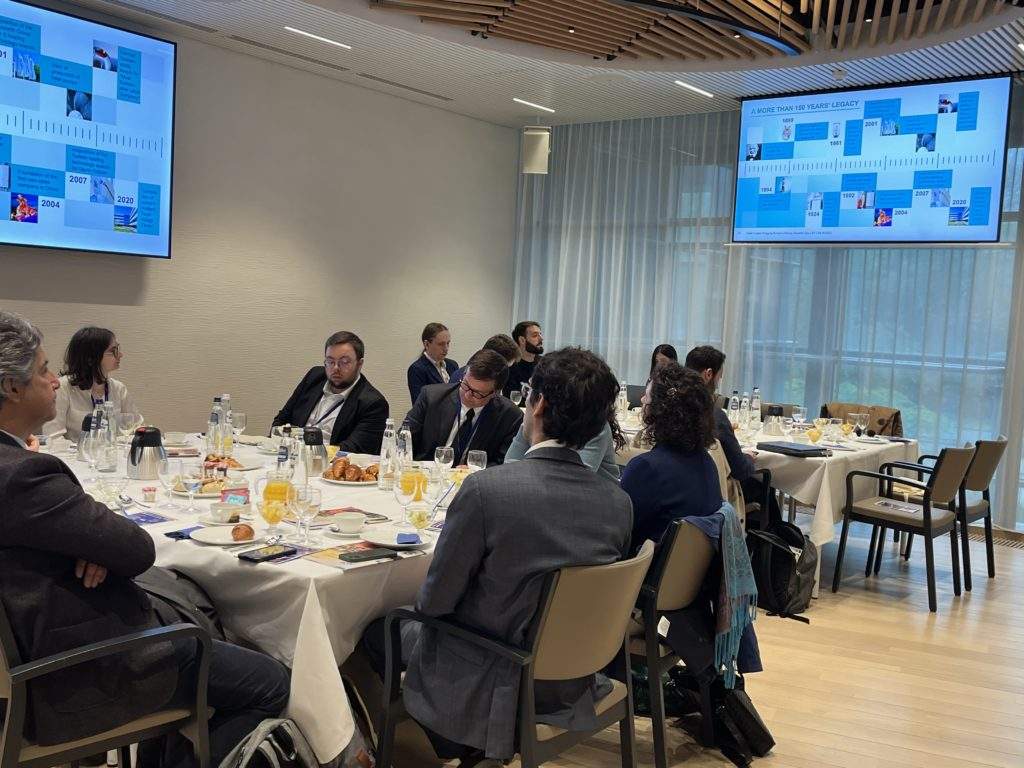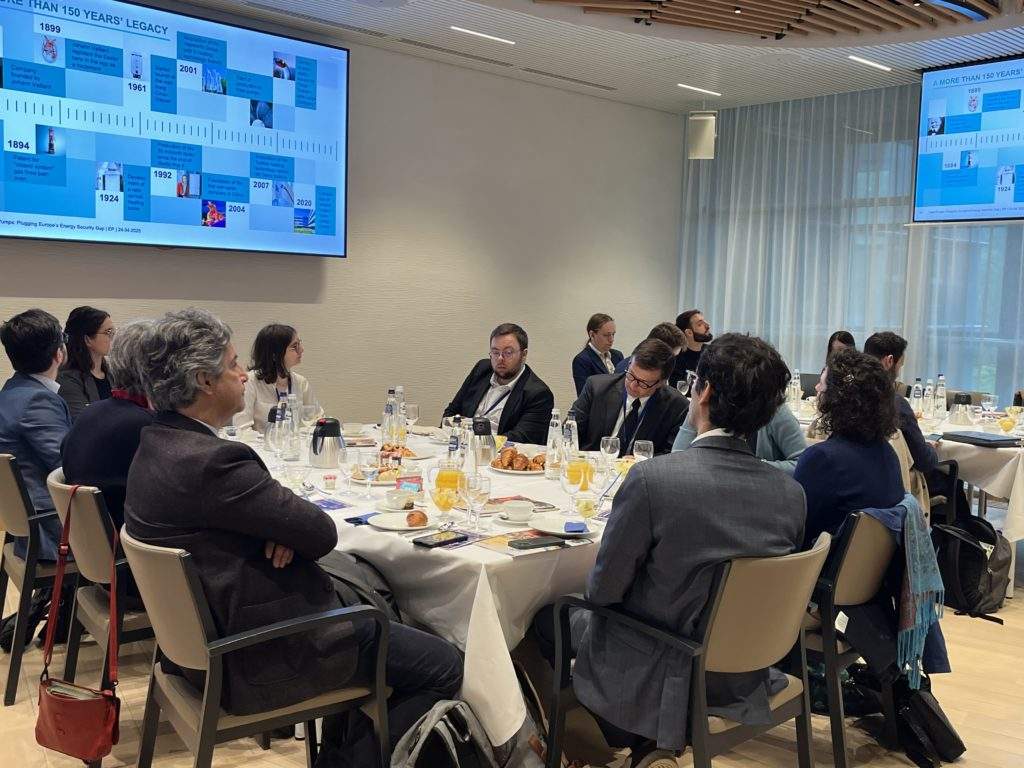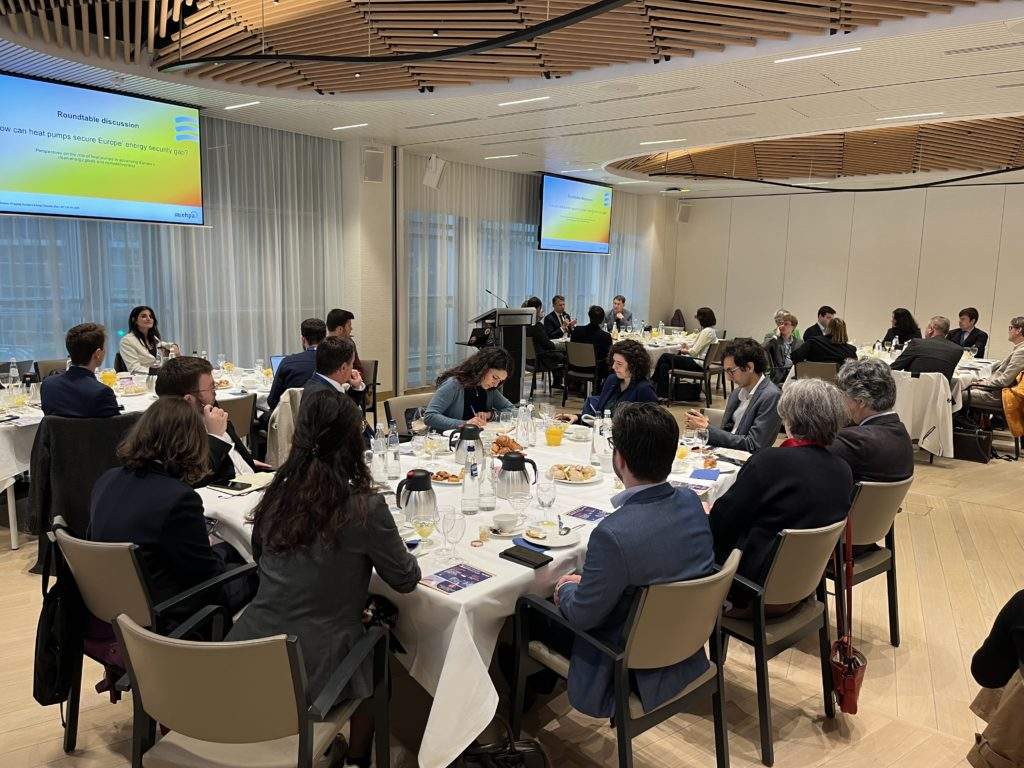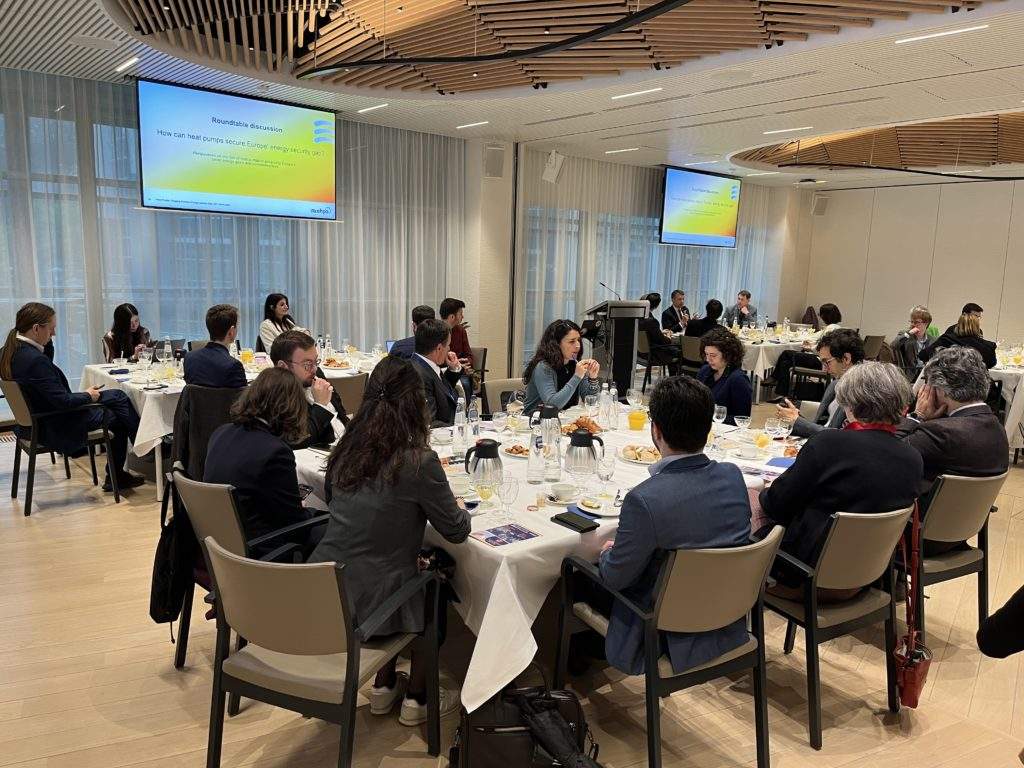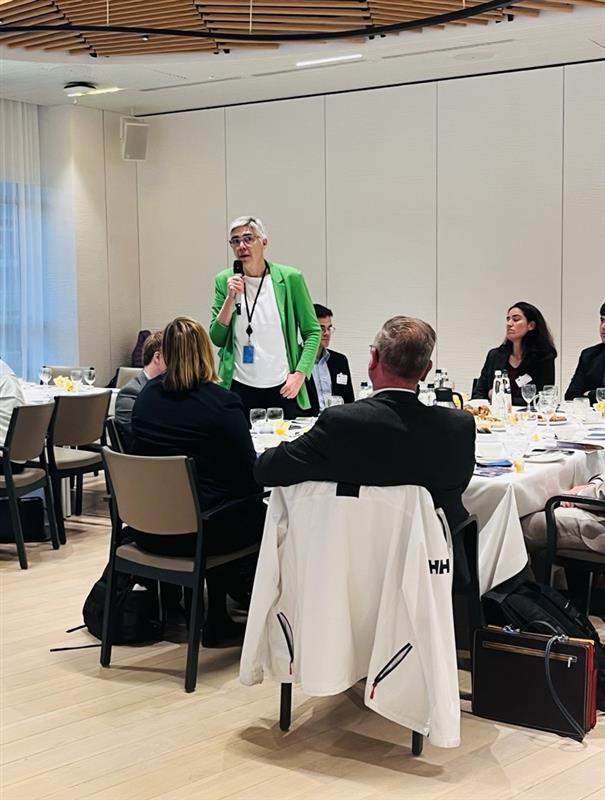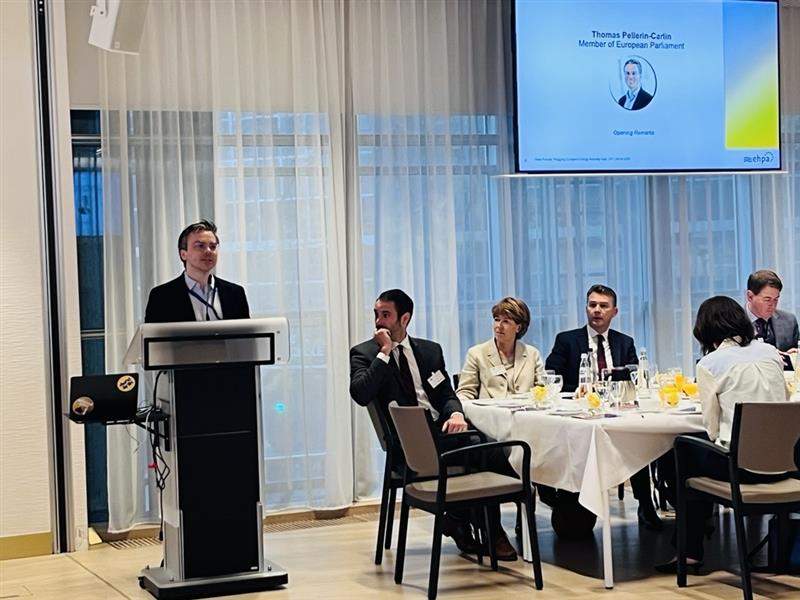Despite the early start, the room of the European Parliament was packed with policymakers, energy experts, and industry on 24 April.
One message rang loud and clear: accelerating the deployment of heat pumps is not only essential for meeting climate goals; it is a strategic priority for Europe’s energy security. See the photos.
In fact, if just 7% of European homes swapped their fossil fuel boiler for a heat pump would slash the amount the EU imports for home and water heating from Russia, our latest figures show.
Hosted by MEP Thomas Pellerin-Carlin and organised by the European Heat Pump Association (EHPA), this breakfast debate explored how clean, efficient heating technologies can reduce Europe’s dependence on fossil fuel imports and protect European citizens, businesses and industries from volatile energy markets.
The Russian invasion of Ukraine brought into sharp focus the risks of Europe’s gas dependency. Daniel Wetzel, Head of the Tracking Sustainable Transitions Unit at the International Energy Agency, noted that the EU has reduced its natural gas imports by approximately 60 billion cubic metres since 2021. Heat pumps have contributed to nearly 10% of this reduction in 2024 alone and could further ease Europe’s dependence on Russian gas.
However, while the European Union seeks to phase out all Russian gas imports by 2027, the issue is broader: in an increasingly unstable geopolitical context, we must reinforce its energy independence by investing in infrastructure and strengthening internal demand for clean energy and scale up investment in energy efficiency.
While the global heat pump market continues to expand, European sales dropped by 21% last year following a decade of record growth, according to EHPA’s preliminary figures. One clear barrier has emerged: electricity remains too expensive, discouraging consumers from switching to electric heating technologies such as heat pumps.
EHPA Director General Paul Kenny underlined the need for a coordinated European approach:
“Europe’s reliance on imported fossil fuels puts citizens at the mercy of unreliable suppliers and erratic prices. We must shift to strategic energy security via sustainable, home-grown heating solutions. A clear EU-level strategy to accelerate heat pump deployment is essential, alongside electricity pricing reforms that ensure heat pumps are the most competitive option.”
Thomas Pellerin-Carlin MEP described how, when visiting a Saunier Duval heat pump factory near Nantes in France, he learned that 300 employees had lost their jobs due to the heat pump slowdown.
This is why a long-term and robust EU investment plan is needed to place the sector back on track, Pellerin-Carlin concluded.
It is not only a question for the European Union. Łukasz Kolinski, Director for Green Transition and Energy System Integration at the European Commission, stressed that the decarbonisation of heating and cooling is a direct contribution to Europe’s energy security. Broader heat pump adoption, combined with improved home energy efficiency, could reduce fossil fuel import costs by €60 billion by 2030, explained Kolinski . Implementation of the Affordable Energy Action Plan and the forthcoming Electrification Action Plan will be essential, but success will also depend on the ambition of national governments. .
Long-term policy stability, cost reductions and affordable electricity prices are necessary to facilitate the transition.
Looking ahead, Barbara Priesching, Group Director for Region West at the Vaillant Group, reaffirmed the industry’s commitment to a globally competitive European cleantech: “As a leading manufacturer of heating appliances, we are strongly committed to transforming our business towards heat pumps. With over €2 billion invested in digitisation and R&D, the future lies in integrated systems designed to offer easy, digital solutions to consumers.”
Access must be simple, and affordable echoed Kolinski. The flexibility of heat pumps makes them ideally suited to this purpose. Plus, there is significant potential for growth in the cooling sector, given heat pumps’ unique ability to provide both heating and cooling, especially after Europe experienced its hottest year on record in 2024, added Wetzel.
The debate also featured contributions from MEP Jutta Paulus, who highlighted how energy efficiency should be much more prominent on governments’ agendas for a secure energy supply According to new figures, Germany could become entirely independent of gas for space and water heating with the installation of 25.8 million additional heat pumps. MEP Niels Fulgsang also shared his views on the importance of managing electricity prices and providing targeted support to help offset the often high upfront costs associated with heat pump installation.
The discussion coincided with the International Energy Agency’s summit on the future of energy security in London and with the release of new EHPA data showing that if 14 million more European homes replaced fossil fuel boilers with heat pumps, this would be enough to substitute all the gas the EU currently imports from Russia for residential heating and hot water. This isequivalent to 13 billion cubic metres of gas and €5.4 billion in avoided import costs.
As Europe aims to reach its REPowerEU target of 60 million installed heat pumps by 2030, today’s debate was a timely reminder that energy security, climate neutrality and industrial competitiveness are interlinked, and heat pumps are at the core of all three.
Ultimetely, as MEP Pellerin-Carlin said : “This is about building a more secure, sustainable and affordable energy system, one that benefits citizens, businesses and communities alike.”
Read the press release and download the leaflet
See photos of the event
